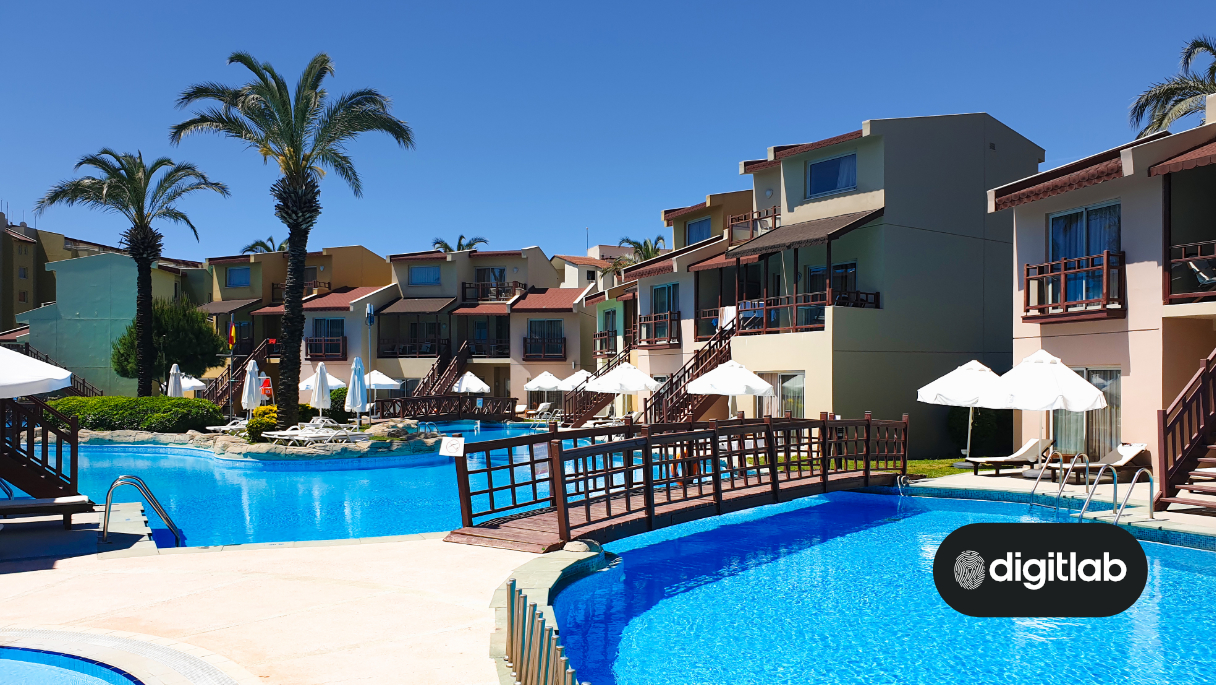Google gives marketers a range of highly effective solutions to aid in their marketing efforts. One of these tools is Google Analytics, a treasure trove of valuable insights and data available to any hotel with a website. What looks at first like a messy blur of graphs and statistics will become lightbulb-moment marketing breakthroughs – all it takes is a little understanding of what you’re looking at, what the data means, and how it can be leveraged to enhance marketing activities. With that said, let’s unpack some aspects of Google Analytics data to improve your understanding of your website users.
Audience data
Audience data on Google Analytics describes the characteristics of internet users who have accessed your hotel website between your specified date ranges.
1. Age
Google Analytics can give you insights into the ages of the people who visit your hotel’s website the most. This is handy information when formulating audience personas when establishing your hotel marketing strategy. If your hotel website is mostly attracting users aged 35 and above, you know that content aimed at Gen Z isn’t going to land well.
2. Gender
Just like information on your website audience’s age, gender data is also an important demographic to look at. Some hotels might find that the vast majority of their website visitors are female. In this case, a masculine website design could be deterring visitors from exploring the website further than the home page. This could also lead to user drop-off before they submit an enquiry or make a booking.
3. Location
Where are your hotel website visitors accessing your website from? Assessing this audience data set will answer the question, and should give you an idea of whether or not your website is being found by the right people. For example, if your hotel receives zero bookings from individuals from India, but 70% of your website’s traffic is coming from India, there’s an issue that needs to be addressed.
Acquisition data
Google Analytics offers acquisition data for assessment, which analyses the sources of the traffic that your hotel website has attracted in your timeframe.
1. Direct traffic
Direct website traffic can be described as website visits from users who already know your brand, your business or your website. They’ve heard of you from some other source, be it radio or television or word of mouth, and they have turned to Google to find out more about your hotel and what it can offer. An improving direct traffic percentage could indicate that your brand awareness is growing in your target market.
2. Organic search
Organic search traffic can be described as users visiting your website after searching Google for products, services and other industry words or phrases that relate to you. For example, a search for ‘hotels in Pretoria’ will populate a list of hotel websites for the searcher to choose from. If your website comes up, and they decide to click on your link, that would be considered an organic traffic session.
3. Paid search
Have you heard of pay-per-click (PPC) marketing? Google Ads is arguably the most popular PPC platform used by businesses across the planet today. Any traffic to your website that comes from clicks on PPC adverts is considered paid traffic – or traffic that was obtained through paid search engine advertising. Access even more valuable hotel marketing insights by integrating your Google Ads account with your Google Analytics profile.
4. Social media
As you might have guessed, this traffic acquisition channel is specifically dedicated to traffic coming from social media sources. When posting your hotel marketing content in channels like Facebook, Twitter, Instagram, TikTok and others, you have a choice to include a URL link to your website (or another website) with your images, videos and text. When social media users click on the links to your website from a post, it will register the source as being social media.
5. Email traffic
Countless hotels across the world rely on email marketing to share important information with their guests. From booking confirmations and promotions, to company updates and well wishes on guest birthdays. Email marketing is still a very effective hotel marketing approach, and when your emails include links that direct people to your website, these will be tracked as email traffic on Google Analytics.
Behaviour data
Behaviour data on Google Analytics describes how website visitors interact with your hotel website, from the moment they land on it to the moment they leave.
1. Content drilldown
The content drill down section on Google Analytics gives you a clear picture regarding which of your hotel website pages are the most popular among online visitors. This information can give you an idea of which website pages you should focus your marketing efforts on, since they are popular and will likely also be popular among first-time website visitors.
2. Landing pages
Landing pages can be described as the first pages that website visitors land on when hitting your website. Most of the time, your website’s home page will be the most popular landing page. However, this isn’t always the case, and assessing your landing pages can give you an indication of which pages are making first impressions on your future guests – and which pages should be optimized the most.
3. Exit pages
In contrast to landing pages, exit pages are the very last pages that your hotel website visitors view before exiting your website. This list will also yield some interesting information that can be used to inform your hotel marketing. For example, if your landing pages are the same as your exit pages, there’s a good chance that your website visitors are not exploring your site further than the first page they land on.
4. Behaviour flow
If your hotel website’s visitors are actually navigating to more than just the landing page, you can track their ‘journey’ using the Google Analytics behaviour flow data. This provides information on the pages your visitors explore after the landing page, including any actions that they take on your website. By monitoring user behaviour flow, you can pinpoint important pages that need extra attention or that need to be removed from your website.
Improve your hotel marketing with a Google Analytics partner
You don’t need to hire a full team of digital marketing and online advertising specialists to promote your hotel on the internet! All you need is an experienced marketing partner to leverage platforms like Google Analytics and get you in front of your ideal guests.











